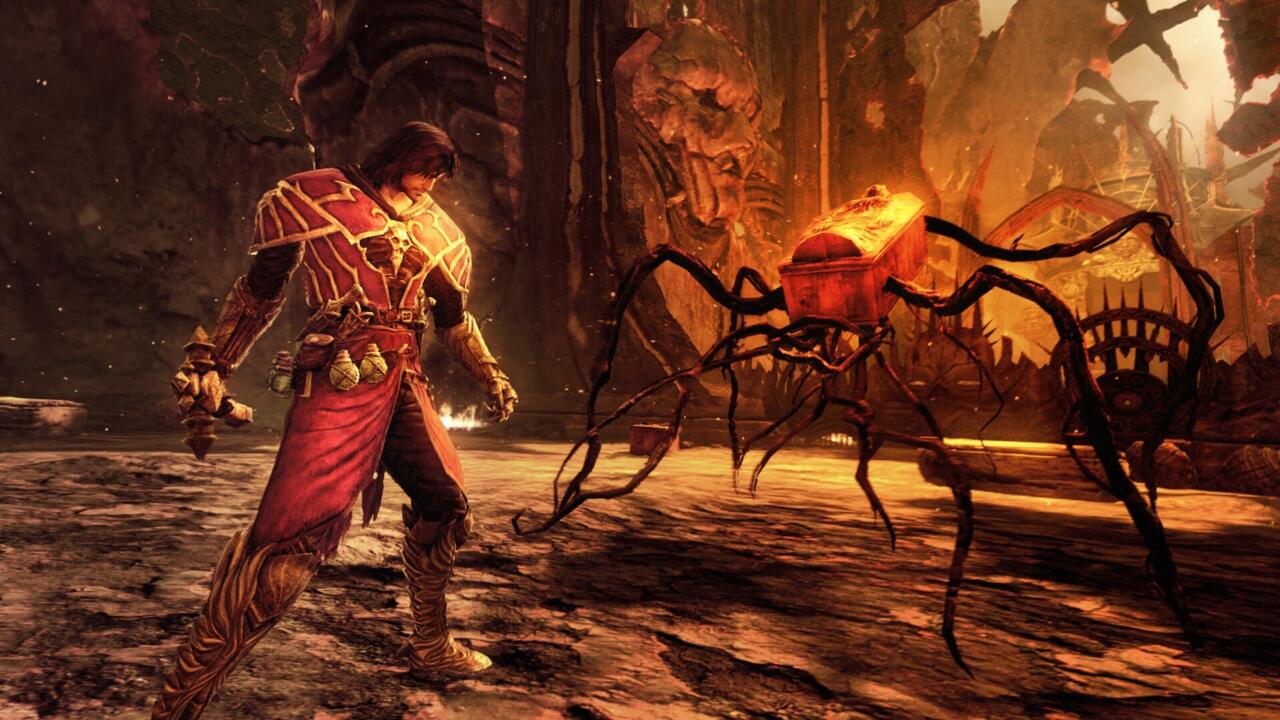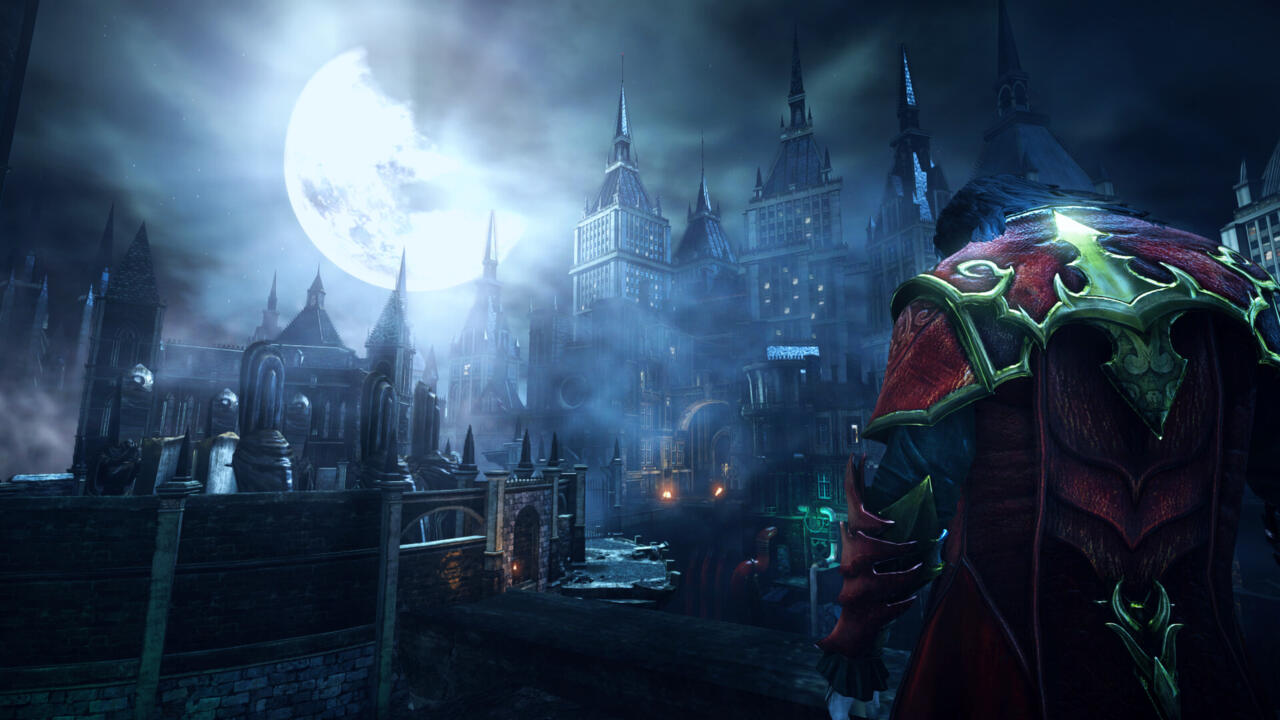When Castlevania is discussed today–at this point far-removed from any new games in the series–we often hear about the same few retro titles. The original game paved the way for other action-platformers. Symphony of the Night influenced decades of non-linear action-RPGs, including a long line of great games on the Game Boy Advance and DS.
However, another game rarely discussed in these conversations, Castlevania: Lords of Shadow, was a radical departure from the series’ past that drew more from Zelda and God of War than it did from Castlevania. Its departures from the series’ conventions only helped make its big twist even more unexpected–and its ending was so badass that it only made Lords of Shadow 2 more disappointing.
Spoilers for Castlevania: Lords of Shadow series to follow!

Castlevania: Lords of Shadow works because of the series’ already-long legacy when it launched, not in spite of it. Starring Gabriel Belmont–a new character whose surname is recognizable to any Castlevania fan–Lords of Shadow spends much of its lengthy playtime focused on a story that doesn’t feel quite like Castlevania. Gabriel’s wife Marie has died, and he’s determined to complete a mission that will apparently result in her resurrection. It’s a story that wouldn’t be out of place in any number of action-adventure games, including a major inspiration like God of War. The trick here, however, is that developer MercurySteam wanted longtime fans to feel a little frustrated while they were playing. Sure, Gabriel had a whip, but where were the spooky bats? Where was Death? And, of course, where was Dracula?
Those players would have to stick around for an after-credits cutscene to have those questions fully answered. Zobek–a magical man voiced by Patrick Stewart who aided Gabriel for much of the game–was Death all along, albeit appearing more often as a soft-voiced narrator than as a spectral horror. And Dracula had actually been in the game too… sort of. The tormented Gabriel became Dracula, living into the modern day and adopting the name, as a result of the events of the game. But with his wife still dead, his vampiric power had become a curse, with the immortal Belmont yearning for eternal rest in place of eternal life. Zobek offered Gabriel that luxury if he would stop Satan’s acolytes from resurrecting him.
A terrific little pile of secrets

Castlevania: Lords of Shadow and its 3DS sequel Castlevania: Lords of Shadow – Mirror of Fate (yes, it’s a bad name) both play on existing expectations of Castlevania lore, even regarding existing characters. In the original canon, as well as the Netflix animated series, Trevor Belmont–a vampire-hunter and Castlevania III protagonist–and Dracula’s son Alucard are separate people. They’re often together, and occasionally battle each other. This isn’t the case here–via Mirror of Fate’s reverse-chronological story, we learn Trevor became Alucard after being killed by Dracula, who just so happened to be his father. Dracula only realized this as Trevor drew his last breaths, and the son woke as a vampire on a personal mission to destroy Dracula. It’s a twist that subverts our expectations while also feeling in line with the previous version of Alucard, and it gives more emotional weight and meaning to the young vampire’s mission.
Both of these games were setting the stage for an incredible finale–for a game that would see Dracula fight the literal Satan, cure his immortality, and die knowing that he had redeemed himself, reverting from prince of darkness to the brave warrior who loved his family he had once been. He would finally team up with Alucard to fight a common enemy, with father and son conquering their personal demons while slaughtering an army of literal ones.
What a horrible night to have a sequel

It’s just a shame we never got that game, because Castlevania: Lords of Shadow 2’s story sucks. No, not in a fun vampire way, but in such a confusing way that it seemed like completely different people wrote it. Characters’ motivations seem to completely change from one game to the next, particularly with regard to Patrick Stewart’s Zobek–a character you have to fight unexpectedly in one of the worst boss fights of the entire game. There were improvements made elsewhere, to be fair, particularly with more complex and flashy combat, as well as a free-turning camera in place of the fixed one from the first game. But, even if your combat is fantastic, there needs to be a reason to fight, and Lords of Shadow 2 just doesn’t seem to know what that reason is.
Did different people write the games? Well, partially. Director and MercurySteam studio head Enric Alvarez was one of four writers, alongside producer Dave Cox, on the first game. Alvarez’s writing contributions appear to have been greater in Lords of Shadow 2, with “written and directed by” in the credits. Cox, meanwhile, is not listed as a writer on Lords of Shadow 2 but did get a writing credit on Mirror of Fate. Whatever the reason was, however, it’s striking how little respect Lords of Shadow 2 seemed to have for all of the setup and earned emotional moments from the previous games.
It seemed all too eager to throw them out without a good reason why, save for having another “twist” that didn’t feel as earned as the original Gabriel-is-Dracula reveal did. Rather than fulfill his destiny and finally rest, Dracula chooses to destroy the Mirror of Fate and forge his own destiny. Out of context, it sounds like a cool way to end the series, but this is a man who has wanted to die for literally hundreds of years. Twists work when the seeds have been planted without the audience realizing it. They don’t work like the one in Lords of Shadow 2, as it seemed to have been chosen entirely at random.
Castlevania: Lords of Shadow 2 should have been an incredible and bittersweet conclusion to the personal tale of one of gaming’s most tragic characters. Instead, it sullied what came before it, giving each twist less meaning and leaving us wondering if Gabriel Belmont’s whole story had been a waste of time. The only reason I’m still thinking about the game more than eight years after it was released is because it could have–and should have–been so much more. MercurySteam had already done the unthinkable by producing a reboot of a classic gaming franchise that players actually liked, but it seemed to second-guess every decision it had made in that game when developing Lords of Shadow 2. If the team ever wants to call a mulligan and just try again, I’m willing to pretend the first Lords of Shadow 2 never existed. Well, except for this.
GameSpot may get a commission from retail offers.
Stay connected with us on social media platform for instant update click here to join our Twitter, & Facebook
We are now on Telegram. Click here to join our channel (@TechiUpdate) and stay updated with the latest Technology headlines.
For all the latest gaming News Click Here
For the latest news and updates, follow us on Google News.
